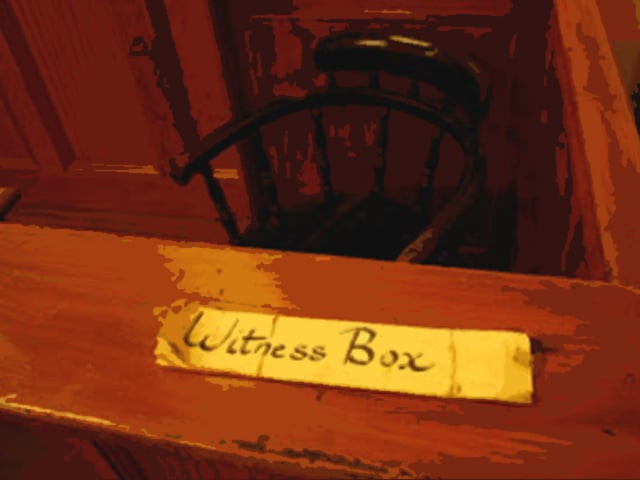First of its kind: Witness protection bill unanimously passed into law
Law minister says the law was being made because of increasing terrorist activities.

The bill provides protection to witnesses and their families, enabling them to provide evidence in criminal proceedings without any fear. PHOTO: FILE
Being the first assembly to make such a law in the country, the Sindh assembly unanimously passed the Sindh Witness Protection Bill 2013 on Wednesday.
The bill provides protection to witnesses and their families, enabling them to provide evidence in criminal proceedings without any fear. It will allow witnesses to conceal their identities by wearing a mask, changing their voice and appearance as well as any other form of segregation during investigation or trial.

Video conferencing will also be allowed in order to secure witnesses. Additionally, witnesses may be relocated and provided with accommodation to keep them safe. The law further states that reasonable financial assistance would be provided to witnesses for them to obtain a means of livelihood and the government would also provide compensation to the legal heirs and free education to the children, if the protected person is killed because of his participation.
Sindh parliamentary affairs minister Dr Sikandar Mandhro said the law was being made in view of increasing terrorist activities in the province. Under this law, the government would establish a ‘witness protection advisory board’. The home department secretary will be its chairperson, while the law secretary, the finance secretary, the advocate general, the IGP, the prisons IG, the prosecutors general, representative of the provincial commission on human rights and the additional inspector general of the Crime Investigation Department will be its members.

“To encourage witnesses and protect them and their families, it is necessary to establish a witness protection programme,” said Dr Mandhro, adding that many witnesses of high-profile cases have been killed by terrorists. “The national assembly and other provinces have also approached us seeking a draft of this bill to replicate.”
Parties’ reaction
All political parties welcomed the legislation. Dr Sagheer Ahmed of the Muttahida Qaumi Movement (MQM) said the government should make sure that the witness protection law was not used against any political party or the government. “How can the government guarantee that a person wearing mask is not a fake eyewitness?”
Nusrat Seher Abbasi of the Pakistan Muslim League-Functional said, “Information department should start a media campaign to inform people about the aims and objectives of this law.” Aamir Moin Pirzada of the MQM said there was also a need to strengthen the evidence system so that conviction rates could go up. “We should strengthen the forensics system by introducing modern technology.”
Syed Hafizuddin and Dr Seema Zia of Pakistan Tehreek-e-Insaf said that the family of the witnesses should be offered protection. “Whenever eyewitness demands it, the government must give protection to that particular family member,” Dr Zia said.
PPP MPA Sharmila Faruqi also appreciated the legislation, saying that the judiciary had also expressed its concern and asked the government to make a law on this issue. Later, the bill was passed into law with minor amendments.
MQM’s surprising mood
It came as a surprise to everyone when the MQM withdrew its adjournment and privilege motions. Senior members of the party requested the speaker to take up their privilege motion moved by MQM MPA Jamal Khan against a raid at his office, but when the government refused, they did not press it. The same situation was witnessed in the adjournment motion moved by MQM MPA Khawaj Izharul Hassan, who said, “Our former MPA arrested by the police has been released, therefore, we do not want to press our adjournment motion.”
PA to amend rules
After 40 years, the Sindh Assembly is going to amend its rules of procedure in consultation with members of all parliamentary parties in the assembly. A draft of the rules prepared by the law department was presented in the session.
Published in The Express Tribune, September 19th, 2013.



















COMMENTS
Comments are moderated and generally will be posted if they are on-topic and not abusive.
For more information, please see our Comments FAQ